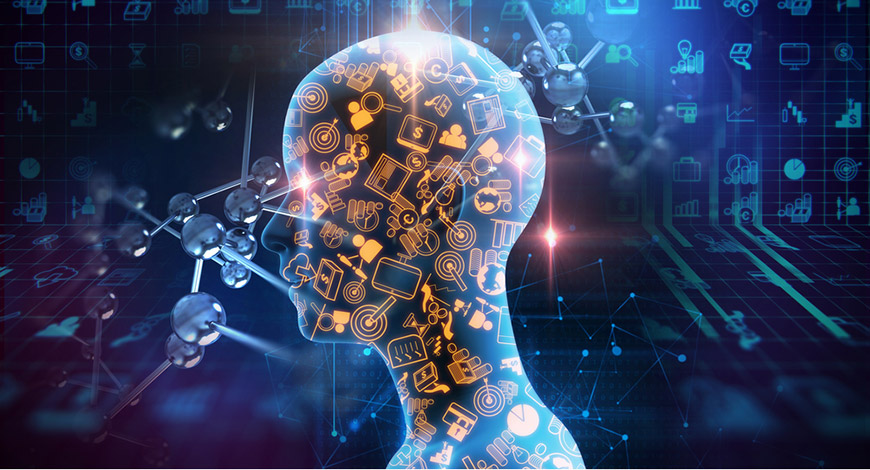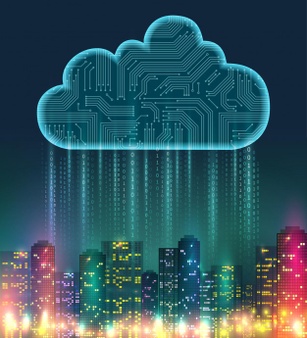New Learning & Development programs for Technology professionals
3AI July 9, 2018

By Incorporating multiple emerging technologies training programs, they can enhance the skills and employability of the existing IT workforce.
Several pieces of research, studies and content have been published about the exponential growth witnessed in emerging technologies – AI, blockchain, RPA, cybersecurity, IoT, AR/VR. There is no doubt that these are the emerging technologies of the future, which will help catapult the next growth spurt of enterprises. Professionals across the information technology landscape are queuing up to upskill, reskill themselves across these mentioned areas to continue to be relevant in the workforce for tomorrow. But for those who already have learning, skills and experience in these emerging technologies, how can they take their career to the next level?
The flux of deployment-ready and value-generating use cases across industries suggest that a cross-technology expertise across these emerging technology areas would be the next big source of career growth for incumbent professionals. We witnessed few years ago, software developers were keen to reinvent themselves as full-stack developers. High performing technologists wanted to develop proficiency across the software architecture and the development life-cycle – from database to UI, and from infrastructure set-up to deployment. Similarly, IT professionals today should seek the synergistic benefits of combining areas across emerging technologies. This article will focus on what emerging technology areas are being effectively combined by enterprises.
AI + Blockchain
Artificial intelligence is the set of technologies that help machines mimic human functions. Blockchain is the emergent technology paradigm that helps build a distributed, immutable sequence of financial events and transactions. With a strong uptick in the dispersion of blockchain use cases, enterprises are also looking for a robust way to surface potential fraud and other anomalous events in real-time. The events of fraud attempt and security threats to blockchain systems are often very high-speed and require immediate attention and analysis to ensure that the perceived anomalies are rooted out. Using AI, specifically machine learning, we can rapidly parse through a log of events to find anomalous situations and flag them off in real-time, protecting the integrity of the blockchain.
AI +IOT
Internet of Things is the network of physical devices that exchange data. This very definition makes the case for combining artificial intelligence and IOT plainly clear. IOT-enabled sensors usually are a source of multitudinous data – based on the use case employed – which is increasingly being sent to the central controlling server in real-time, rather than in batches. Picking out key inferences from voluminous data, sent in real-time by numerous sensors is a task that is again handed over to AI systems – typically machine learning systems. While IOT systems can ably sense, transmit and store data, ML systems are required for making sense of the data and providing input on whether any action is required to be taken, and potentially even suggesting what best-case action could be taken.
IOT + Smart Cities
While the concept of a Smart City is a sub-segment of IOT, it’s the other way around. IOT forms only one of the component of powering a smart city. In addition to IOT, the Smart City stack would typically also include cloud (for running processes and storing data), Artificial Intelligence (for data analysis and learning) and an element of urban planning (for deciding the what and how of a Smart City design). By combining knowledge of IOT with these other ancillary areas can help IOT professionals become valuable and irreplaceable resources in this fast-growing technology area.
AI + Behavioral Sciences
This final combination may sound surprising, but one of the most valuable and high-impact grouping of skills might just be the combination of data science and behavioral science. While AI and data science can provide the what (‘What happened?’ And ‘What should we do now?’) of a business scenario, behavioral sciences inform the how part. Consider the example of Amazon, which has numerous examples of the coming together of behavioral sciences and AI. The recommendation engine uses artificial intelligence to answer the what part of ‘what are other people buying’. But, the idea that it will lead to continued stickiness on the website, serve as a wide showcase of SKUs available on it, while promoting product bundling and larger cart sizes is a clear behavioral sciences intervention and contributes massively to the success of AI applications.
If you are a professional already conversant with one of the emerging technology areas, combining that with another emerging area can be hugely beneficial. IT professionals today in these areas should strongly consider leveraging synergies across multiple technology areas – which can help them be better-rounded, high-value practitioners in an ever evolving areas of technology.






